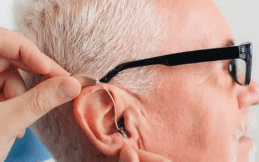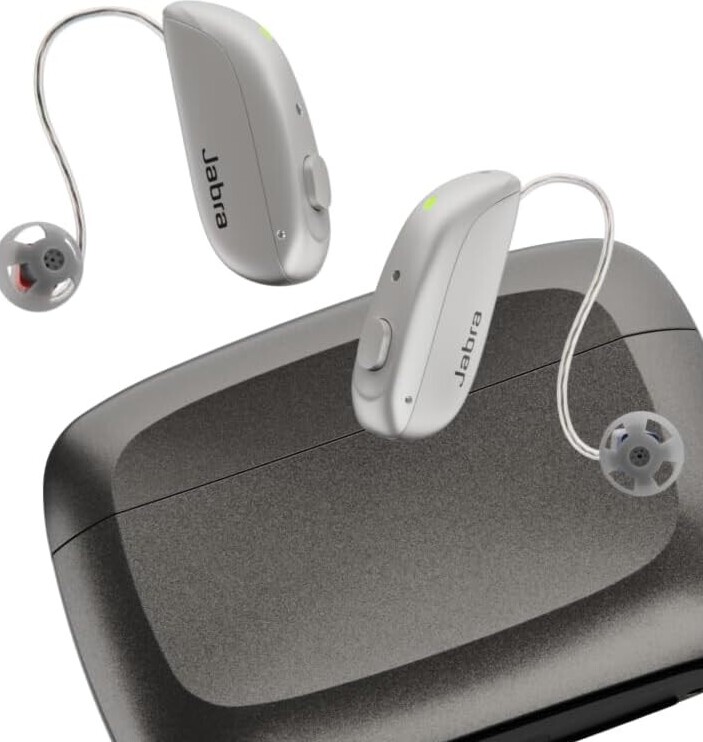Hearing is a big part of how we connect with the world. It helps us in conversations, lets us enjoy music, and keeps us safe by alerting us to sounds like car horns or fire alarms. When hearing doesn’t work as well as it should, it can be frustrating and even isolating.
Most hearing issues stem from the tiny hairs in our inner ear not doing their job. Imagine them as little messengers that tell the brain, ‘Hey, here’s a sound to consider!’
When they’re damaged or missing, messages get lost in translation.
With hearing loss being pretty common, it’s essential to know your options when seeking help. Almost 15% of adults report hearing difficulty at some point. Whether affected by age, loud noises, or other factors, understanding hearing solutions can make a big difference.
Many devices can support those struggling with hearing loss. We often talk about hearing aids and amplifiers, but don’t forget about sound therapy and specialized ear protection. Each tool has its place, and finding the right one is key to better hearing health.
What is a Hearing Aid?
Hearing aids are smart little devices that boost hearing ability when things start going quiet. Essentially, they pick up sounds from the environment, process them, and then deliver those sounds to your ear in a way that’s easier to hear. They’re like mini sound factories tuned just for you.

The technology inside these gadgets is pretty impressive. With tiny microphones, amplifiers, and speakers, hearing aids amplify sounds selectively. They can distinguish between background noise and voices, making conversations clearer without turning up the volume on everything else in the chaotic world around us.
There are heaps of options when it comes to hearing aids, ranging from those that sit neatly inside your ear canal to ones that rest discreetly behind the ear. Some even come with Bluetooth capability, meaning you can connect them to your phone or TV.
So, who benefits from these high-tech helpers?
Mostly, it’s folks who have persistent hearing loss that gets in the way of daily life. Hearing aids are often recommended by audiologists after thorough tests to match both the type and degree of hearing loss a person has.
Recommended Reading: What is The Most Advanced Hearing Aid In Our Time?
Decoding Hearing Amplifiers
Hearing amplifiers, sometimes called personal sound amplification products (PSAPs), might look similar to hearing aids, but they’re a different ballgame.
These devices are more like a magnifying glass for sound. Their job is to make everything louder, which can be a double-edged sword.
Unlike hearing aids, there’s no sound-processing wizardry at work in amplifiers—they aren’t tailoring the sound for your specific needs. It’s a basic boost to everything, from the voices at a party to the hum of your refrigerator, without discrimination.
They come in many shapes and styles.
Some of the decent ones that I reviewed are the Jabra Enhanced Select 500 and the Mach 2 Pro Wireless OTC hearing devices.
Some clip onto your ear like a Bluetooth device, while others might look like a regular pair of earbuds. They’re generally more accessible, and often available over the counter at pretty reasonable prices compared to professional-grade hearing aids.
Who typically uses hearing amplifiers?
They’re often a choice for folks who are curious about sound enhancement but aren’t ready to commit to a full-blown hearing aid. They can also be helpful for people who don’t have diagnosed hearing loss but want an occasional volume boost, say, for birdwatching or listening to lectures.
It’s important to remember that amplifiers are not a substitute for hearing aids if you have a diagnosable hearing loss.
They aren’t regulated medical devices, which means they don’t come with the same assurances of quality and effectiveness. Choosing wisely and knowing your needs is key.
Key Differences: Hearing Aids vs Hearing Amplifiers
When it comes to picking a team—hearing aids or amplifiers—there are some clear distinctions to guide you. Understanding these differences is crucial in making a choice that genuinely helps your hearing without any surprises.
First up is regulation and protection.
Hearing aids are medical devices regulated by the FDA, meaning they’ve passed certain checks for safety and efficacy. Amplifiers, not so much. They’re more like consumer electronics, similar to headphones, and don’t offer the same assurances or protections.
Technology sets these two apart, too.
Hearing aids are mini-computers tailored to your specific hearing loss through professional fitting and adjustment. Amplifiers crank up the volume but don’t differentiate between sounds. This lack of customization means they might not suit those with consistent hearing problems.
On cost, amplifiers usually win the affordability race.
They’re less expensive, making them tempting as a quick fix. However, it’s crucial to see them as what they are—just a boost, not a solution for hearing loss.
Picking the right device can be a game changer for your quality of life.
If you’re experiencing hearing difficulties, a visit to an audiologist is a wise starting point. They can help determine whether hearing aids or amplifiers—or possibly another solution entirely—will work best for you.
Does it sound like you need a hearing aid or a hearing amplifier?
| Feature | Hearing Aids | Hearing Amplifiers |
|---|---|---|
| Primary Purpose | Specifically designed to improve hearing for individuals with diagnosed hearing loss. | Amplifies all sounds without distinguishing between noise and speech. |
| Technology | Uses advanced technology to selectively process and amplify sound, often filtering out background noise. | Basic sound amplification with no filtering or customization. |
| Customization | Tailored to the individual’s specific type and degree of hearing loss, with professional fitting and adjustments. | No customization; amplifies all sounds equally. |
| Regulation | Regulated medical devices approved by the FDA for safety and effectiveness. | Not regulated as medical devices; sold as consumer products. |
| Who Should Use It | Individuals with diagnosed hearing loss, often recommended by an audiologist. | People without diagnosed hearing loss who want occasional sound enhancement. |
| Cost | Generally more expensive due to advanced technology and professional fitting. | More affordable, usually available over the counter. |
| Availability | Requires prescription or professional consultation for fitting and customization. | Easily available without a prescription, often over the counter. |
| Use Case | Helps with consistent, long-term hearing challenges and improves clarity of speech in noisy environments. | Provides a general sound boost, useful in specific situations (e.g., birdwatching, lectures). |
| Sound Processing | Selectively amplifies and processes sounds to enhance clarity, especially in conversations. | Amplifies all sounds equally without any distinction between background noise and important sounds. |
| Fitting & Adjustment | Requires professional fitting and regular check-ups to adjust settings. | No fitting required; ready to use out of the box. |
Feel free to leave your comment below.
Looking forward to hearing from you.
Talk to you next time.
Regards
Roopesh


I don’t even know if I’ve heard the term , “amplifier”. My left ear has less hearing, but I have not been diagnosed. I generally function fine, but my wife can get annoyed at my “selective” hearing. She has suggested getting me hearing aids, which I have not shown interest. If anything, I’d look into Amplifiers for a selective fix at times. Good comparisons to help people make an informed decision.
I’m glad you found the comparisons helpful! It sounds like you’re experiencing mild hearing loss, and I totally get your hesitation about hearing aids.
An **amplifier** is a simpler, less expensive device that can help make sounds louder, but it doesn’t have the advanced features of a hearing aid, like background noise reduction or frequency adjustments. Amplifiers are good for occasional use, like when you’re watching TV or having a one-on-one conversation. However, they amplify *all* sounds, including background noise, which can sometimes make things more difficult in noisy environments.
If you’re looking for a “selective fix,” amplifiers could be a convenient option for now, but if your hearing loss progresses, a hearing aid might give you more control and clarity, especially in complex listening situations like restaurants or group conversations.
It might be worth getting your hearing checked just to see where things stand. That way, you can make a more informed decision between amplifiers and hearing aids.
Let me know if you have any other questions! 😊
Roopesh’s post does a great job of breaking down the differences between hearing aids and amplifiers in a way that’s easy to grasp. He kicks things off by emphasizing how crucial hearing is in our everyday lives, which really resonates with readers. By showcasing the practical applications of both devices, he keeps it relatable. He also stresses the value of talking to an audiologist and shares real-life examples, like birdwatching or attending lectures, making the subject feel accessible. The clear chart and simple language make the post super informative and easy to navigate, helping readers figure out which device suits them best.